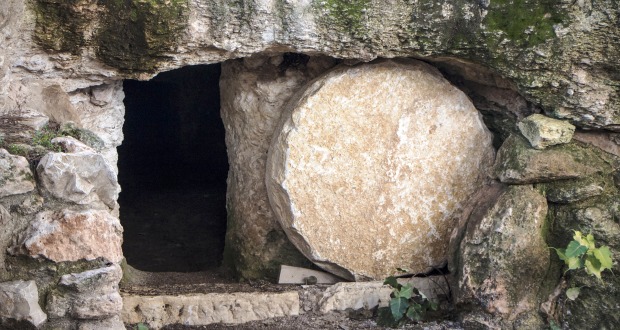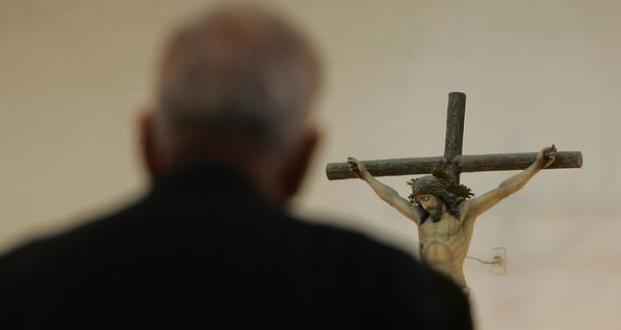The Miracle of Lazarus’ Resurrection: A Story of Faith, Power, and New Life

The raising of Lazarus from the dead is one of the most extraordinary miracles performed by Jesus in the Bible, and it is recorded in the Gospel of John, chapter 11. This story is a testament to Jesus’ divine power and reveals important truths about his message and ministry.
The story of the raising of Lazarus begins with a message from Mary and Martha, the sisters of Lazarus, informing Jesus that their brother is gravely ill. The sisters were close friends of Jesus and they had faith in his power to heal their brother. So, they sent a message to Jesus saying, “Lord, the one you love is sick.” (John 11:3)
However, when Jesus receives the message, he does not immediately go to Bethany. Instead, he tells his disciples, “This sickness will not end in death. No, it is for God’s glory so that God’s Son may be glorified through it.” (John 11:4)
Jesus’ response is surprising because he does not rush to Lazarus’ side, but instead waits two more days before traveling to Bethany. This delay is significant for several reasons. Firstly, it allowed Lazarus to die and be buried before Jesus arrived. This made his resurrection all the more miraculous because there was no doubt that he was truly dead.
Secondly, the delay allowed Jesus to demonstrate his power over death, which was a key aspect of his message and ministry. By waiting to go to Lazarus, Jesus was able to show that he was not only able to heal the sick but also raise the dead in a very powerful way. It must be noted that even though there are two other recorded instances of the dead being raised to life by Jesus, the raising of Lazarus is by far the most significant. This was a powerful demonstration of his divine power and authority. In the cases of Jesus raising the son of the widow in the town of Nain (Luke chapter 7), and raising Jairus’ daughter (Mark chapter 5), they had not yet been buried, nor did their bodies start to decay. However in this case, Lazarus had been in the tomb for four days when Jesus came. So he was totally dead, his body would have started to decay and the situation seemed completely hopeless.
Thirdly, the delay allowed Jesus to prepare his disciples for what was to come. He told them, “Our friend Lazarus has fallen asleep; but I am going there to wake him up.” (John 11:11) When they didn’t understand, he clarified, “Lazarus is dead, and for your sake I am glad I was not there, so that you may believe. But let us go to him.” (John 11:14-15)
Jesus’ delay was important because the raising of Lazarus was a pivotal moment in his ministry. It was one of the most remarkable miracles he performed and it had a profound impact on those who witnessed it. It was also a catalyst for the events that led to his own death and resurrection, which were the ultimate demonstrations of God’s power and love.
When Jesus finally arrives in Bethany, Martha and Mary are understandably upset and grieving the loss of their brother Lazarus. They were hoping and expecting Jesus to come sooner, to heal their brother; but now it was too late – at least so it seemed – as Lazarus had already been dead and buried for four days.
Martha hears that Jesus has arrived and goes to meet him. She tells him, “Lord, if you had been here, my brother would not have died.” (John 11:21) But then, she said something that was truly extrordinary as she continued, “but I know that even now, whatever you ask of God, he will grant you.” That’s absolutely extrordinaty! Martha’s statement is a testament to her unwavering faith in Jesus’ power. She believed that even when all hope was gone, Jesus could still work a miracle.
But Jesus responds, “Your brother will rise again.” (John 11:23) Martha, thinking that Jesus is talking about the general resurrection at the end of time, says, “I know he will rise again in the resurrection at the last day.” (John 11:24)
Then Jesus makes a profound statement, “I am the resurrection and the life. If anyone believes in me, even though he dies, he will live; and whoever lives and believes in me will never die.” (John 11:25-26) With these words, Jesus asserts his divine authority and power over death. Martha confesses, “Yes, Lord. I believe that you are the Christ, the Son of God, who is to come into the world.” (John 11:27)
This confession of faith by Martha is significant because it shows that even in the midst of her grief and hopelessness, she still trusts in Jesus and believes that he has the power to bring her brother back to life; that he has the power to do anything, and that nothing is too difficult for him. It also shows that she knows who Jesus is. She not only sees him as a healer but as the Christ, the Messiah, the Son of God.
Martha then goes and gets her sister Mary, who comes running out to meet Jesus and falls at his feet, weeping and expressing her grief. Jesus, moved by Mary’s sorrow, asks to be taken to the tomb, and he wept. Jesus, the Christ, the Son of the Living God cried over the death of his friend Lazarus even though he knew he was going to raise him from the dead. The reason for Jesus’ tears is not explicitly stated in the text, but there are a few possible explanations that have been suggested by scholars and theologians.
One possibility is that Jesus was deeply moved by the grief and mourning of those around him, including Lazarus’ sisters Mary and Martha and the other people who had come to mourn with them. Jesus was known for his compassion and empathy, and it’s possible that he was deeply affected by the sadness and pain of those he loved.
Another possibility is that Jesus’ tears reflect his own humanity and his experience of loss and grief. While Jesus was fully divine, he was also fully human, and he experienced the full range of human emotions. Even though he knew he was going to raise Lazarus from the dead, the reality of his friend’s death and the pain it caused those around him may have been overwhelming.
Finally, some scholars have suggested that Jesus’ tears were a way of demonstrating his solidarity with humanity and his willingness to enter into our suffering. By weeping over Lazarus’ death, Jesus showed that he was not distant or disconnected from human pain and loss, but rather fully present and engaged with the world he came to save.
In any case, Jesus’ tears at the tomb of Lazarus demonstrate his deep love and compassion for humanity, and they serve as a powerful reminder of his humanity as well as his divinity.
When he arrives, he commands that the stone covering the entrance be rolled away, despite objections from Martha and others who fear the smell of the decaying body. Jesus, however, is undeterred and prays to God, thanking Him for hearing his prayer and for the sake of the people standing around, so that they might believe that he was truly sent by God; then he calls Lazarus to come out of the tomb. The words of Jesus, “Lazarus, come out!” (John 11:43), are simple yet powerful, as the crowd watches in amazement as the dead man comes out of the tomb, still wrapped in his burial cloths. This is an incredible moment, and it demonstrates the awesome power and authority of Jesus over death itself. It also shows us that God’s power is not limited by our understanding of what is possible.
This miraculous event has significant implications for Jesus’ followers and for all of us. The raising of Lazarus foreshadows Jesus’ own resurrection, which would occur just a few weeks later. It also gives us hope that death is not the end, and that through faith in Jesus, we can experience resurrection and eternal life.
The story of the raising of Lazarus from the dead is rich in themes that are relevant to believers today. One of the most prominent themes is the power of faith and belief in Jesus as the Son of God. Martha’s statement of faith in Jesus as the Christ is a key moment in the story, and it emphasizes the importance of faith in Jesus as an essential component of salvation. She expresses her belief in Jesus, saying “Yes, Lord, I believe that you are the Christ, the Son of God, who is to come into the world” (John 11:27).
Another important theme is the power of miracles to inspire belief. The raising of Lazarus is a remarkable demonstration of Jesus’ power, and it causes many people to believe in him. It is a clear sign of his divinity and authority over death. This event proves that Jesus is not just a teacher or prophet but the Son of God, and it encourages people to place their faith in him.
However, the story also highlights the fact that not everyone will believe, even in the face of overwhelming evidence. Despite witnessing the incredible miracle of Lazarus’ resurrection, some of the people present refuse to believe in Jesus. They report the event to the religious leaders who become increasingly threatened by Jesus and his growing influence. This serves as a reminder that faith cannot be forced upon anyone; it is a personal decision that requires an open heart and mind.
Another powerful theme in the story of Lazarus’ resurrection is the idea of death and resurrection. Lazarus’ rising from the dead foreshadows Jesus’ own resurrection, which is the ultimate demonstration of God’s power over death. It’s significant that Jesus waited for two days before going to Bethany because it allowed Lazarus to truly be dead and buried, making his resurrection all the more miraculous. This emphasizes the power of Jesus to overcome even the most final and irreversible aspects of death. He is truly Lord!
As we reflect on the story of Lazarus’ resurrection, we are reminded of the power of Jesus to overcome even the most impossible situations. There is no problem too big that he cannot solve, nor is there any mountain too tall that he cannot move. We can trust in his ability to bring new life to our own struggles and challenges.
Let Us Pray:
Heavenly Father,
We come before you with grateful hearts, praising you for the miraculous raising of Lazarus from the dead. Your power over death and the grave is truly awe-inspiring, and we thank you for demonstrating it through your son, Jesus Christ.
As we reflect on this powerful story, we are reminded of our own mortality and the struggles we face in this life. But we take comfort in knowing that you are with us every step of the way, and that even in the darkest moments, you are working all things for good.
We ask that you would strengthen our faith and trust in you, and that we would be reminded of the hope we have in Christ, who has conquered death once and for all. Help us to live our lives in a way that honors you and brings glory to your name.
We pray for those who are facing sickness, loss, or despair, that they would be comforted by your love and grace. We pray that you would bring healing and restoration to their lives, and that they would know the power of your resurrection in their own lives.
We ask all of this in the name of Jesus Christ, our Lord and Savior.
Amen.






